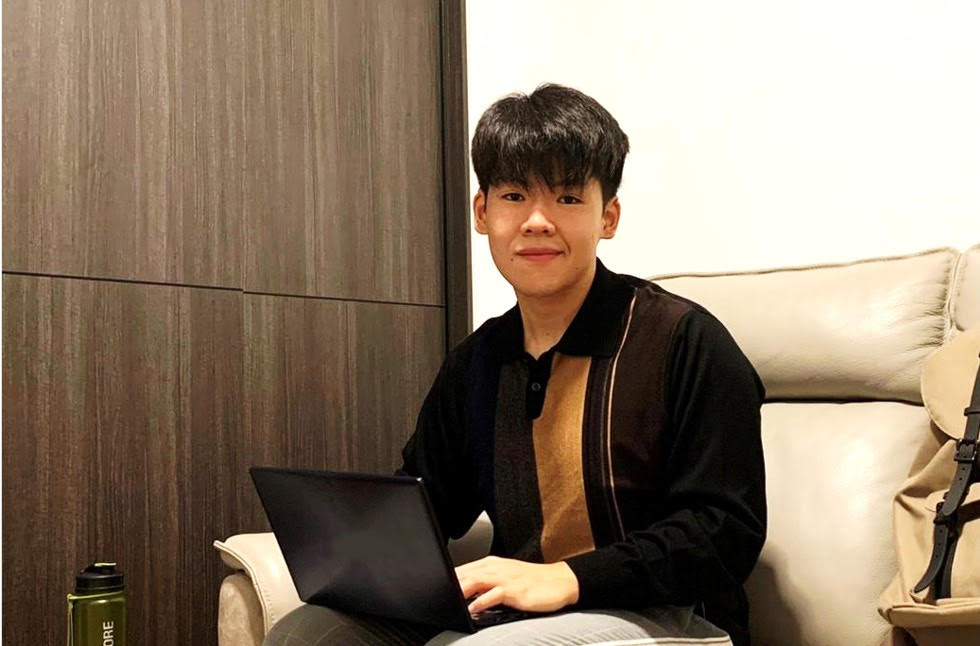Lee Jinda vividly remembers the moment he got the news.
He was enjoying his lunch when he received an SMS from his form teacher.
It read, “With deepest regret, I have to inform you that you are retained at Secondary 3 Express…”
“I felt the world collapse around me at that instant,” the 18-year-old shared. “Although my teachers had warned me that this might happen, I had always thought that they were just trying to scare me.”
Now he would be the only one among his friends to repeat Secondary 3.
How does one cope when everyone has moved on without you?
Secondary 3 (the first time)
Looking back, Jinda feels that this outcome was not surprising.
Since his lower secondary days, the Beatty Secondary School student had been barely scraping by in his tests and examinations because he was more interested in playing and did not really bother to keep up with his studies.
“I was pretty disorganised, and sometimes I only realised that there was a test on the day itself,” he admitted. “My teachers tried to counsel me, but I didn’t really care. Since I had managed to pass Secondary 2 with a 51% at the end of the year, I believed it would be okay and I would always make it!”
In CCA, it was another story. Jinda performed well in his Uniformed Group CCA and his teachers had appointed him the team leader for an inter-school drill competition. Soon, he was spending most of his time on this, even staying up late at night to plan the choreography and training schedule. He also began to find himself falling asleep in class more often.
“I felt that it was a big responsibility and I wanted to make the school proud,” Jinda reflected. “Even in class, I was thinking about the drill routines and how to help my team improve. It was almost an obsession!”
With all this going on, Jinda failed all but two of his subjects at the end of the year.
That was when reality sank in.
“Hi, I’m Jinda. I was also in Sec 3 last year.”
Although his parents did not berate him, he could sense their disappointment.
“I felt that I was not a good role model for my younger siblings,” Jinda shared. In fact, he would be in the same level as his younger brother (though in a different class) the next year. This added to his sense of shame.
The first day of school was especially difficult. Jinda remembered how his friends joined the Secondary 4 block in the hall, while he was seated with the new Secondary 3s. Another awkward moment was when he had to introduce himself and say the class he was from. Although his classmates did not make fun of him for being retained, they did not dare to speak to him at first.
“I think it’s because I was quite big and looked fierce!” Jinda laughed as he looked back. “My teachers always asked how I was doing though.”
The first time the Assistant Year Head checked in with him, Jinda broke down.
“He was very kind and offered to help. At that point, all the feelings just overwhelmed me – thankfully, he was willing to listen and let me cry it out.”
As he felt awkward among his new classmates, Jinda avoided them in the first few months and cloistered himself in the library during recess. Then, one day, three of his classmates found him and tried to strike up a conversation. He initially rebuffed their attempts to talk, but they surreptitiously left some snacks and a packet of Milo under his desk during recess the next day. That touched him, and convinced him to make an effort to open up.
“I started by making friends with the three of them, and slowly got to know the rest,” he shared. “Once I did that, things got better, and I actually felt that I belonged in my new class.”
Jinda later learnt that his younger brother had asked his classmates to look out for him, and the trio had thought of their own little way to show that they cared.
Secondary 3 (the second time)
Jinda’s new friends not only helped him fit in, they also helped him get back on track academically. They often offered to revise with him, and filled in any gaps of things he may have missed during lessons. With their support, Jinda felt a lot more motivated.
“I made myself pay attention, and take notes in class,” Jinda shared. “I felt like I simply could not mess up again. It was stressful, but I was determined to do it.”
His new attitude was also seen in his CCA. He was as involved as ever, and was thankful that his teachers allowed him to continue as one of the leaders of the drill competition squad. The difference this time? He would strictly focus on his studies when it was time to hit the books.
“It is about balance,” he reflected. “I knew it was my own fault for overdoing it the previous year. I wanted to prove that with discipline, I could manage both my CCA and studies at the same time.”
Jinda wanted to ensure that his juniors did not repeat his mistake. He knew the training was intense and they would be tired afterwards, so he got them to finish their homework before training. He even checked with their teachers to make sure they were not skipping any remedial classes for CCA.
His efforts paid off and the team emerged as national champions the next year when he was in Secondary 4. Yes, Jinda was promoted. His results were not excellent, but he passed most of his subjects.
“I don’t regret it, because I learned from it.”
Today, Jinda is in the first year of Ngee Ann Polytechnic’s Diploma in International Trade and Business. He did pretty well in the O-Levels, crediting his results to his teachers who were willing to spend extra time after school to coach him. He is also thankful for his friends who provided the emotional support he needed to pull through.
Jinda is clear about how the experience of being retained changed him.
“Looking back, I don’t regret it,” he shared. “If I had scraped through in Secondary 3, I would likely have continued to neglect my studies. I doubt I would have done half as well as I did for my O-Levels, and I certainly would not be able to enter the course that I’m in now.”
He believes he also learnt to be more forward-looking. In choosing his polytechnic course, he did considerable research and planning to make sure it is in line with what he wants for the future. This is in sharp contrast to his attitude in Secondary 3.
“I think I became a better person, so I am not ashamed of what happened.”
Now, Jinda can even laugh about this experience with his friends.
In fact, whenever they are unable to make it for a meet-up, they text him to say, “With deepest regret, I have to inform you that….”
Making the most of your second chance
Here’s Jinda’s advice for those who may find themselves in similar waters:
- Don’t wall yourself up: “We all need friends. Isolating yourself will only make you more miserable. Make an effort to take the first step (unlike me), and you will find that most people are very accepting and won’t look down on you.”
- Balance is everything: “You don’t have to give up all your hobbies, but make sure that you really concentrate when it’s time to study. It helps to do your homework before you play. Not only will you be less tired, knowing you can do something you enjoy afterwards can also motivate you to focus.”
- There’s no shame in failing: “It’s ok to take a longer time so long as we get to our goal. There are many examples of people who picked themselves up after a setback. I did, and I am just an ordinary student like you. So take the chance to catch up and try again. The only way out is up.”





.jpg)
8c9d7aa7a8a66eb2afccc900c73e6f2e.jpg)